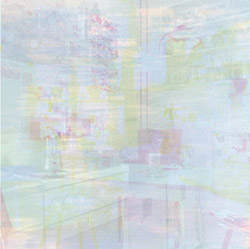
Two hauntingly beautiful works in microtonal composer and violist Catherine Lamb's "Prisma Interius" series, the first a duo with violinist Johnny Change and Xavier Lopez on the "secondary rainbow synthesizer", which channels the sound outside of the performance space as a generator of ambient sound; then a sextet of strings and winds with two secondary rainbow synthesizers.
In Stock
Quantity in Basket: None
Log In to use our Wish List
Shipping Weight: 3.00 units
EU & UK Customers:
Discogs.com can handle your VAT payments
So please order through Discogs
Sample The Album:
Catherine Lamb-viola, composer
Johnny Chang-violin
Xavier Lopez-secondary rainbow synthesizer
Rebecca Lane-tenor recorder
Lucy Railton-violoncello
Jon Heilbron-contrabass
Joseph Houston-secondary rainbow synthesizer
Xavier Lopez-secondary rainbow synthesizer
Click an artist name above to see in-stock items for that artist.
UPC: 5902249003062
Label: Sacred Realism
Catalog ID: sr011
Squidco Product Code: 29784
Format: CD
Condition: New
Released: 2020
Country: Germany
Packaging: Cardboard Gatefold
Recorded at Andreas Kirche, in Wansee, Berlin, Germany, in August, 2019, by Adam Asnan. Mastered by Giuseppe Ielasi.
"In Catherine Lamb's Prisma Interius series the unpredictability of the outside articulates the field of perception through precise bandpass filters, while acoustic instruments and musicians guide the unfolding of its harmonic space. The series consists of nine pieces exploring the potential of the Secondary Rainbow synthesizer, an instrument developed in 2016-2017 with Bryan Eubanks, that uses the live environment outside the performance space as a noise generator for basic subtractive synthesis. The intention is to dynamically fuse the outside world and acoustic instruments, and what emerges is a sort of Aeolian harp "residue" highlighting the spectral information the listener might perceive in a given moment. A beautiful addition to an already impressive catalog of recordings and scores by the young composer. Captured with stunning clarity by Adam Asnan and featuring a phenomenal ensemble of musicians."-Sacred Realism
"Back in 2017, when writing about the fifth and, at the time, latest in Catherine LambÔs ongoing series Prisma Interius, i talked a lot about consonance and dissonance, the way that its pitches began life around a central point from which they emerged and split off, ultimately creating a harmonic language that i characterised as ŇprovisionalÓ. And last year, when LambŐs Atmospheres Transparent / Opaque featured in my Best Albums of 2019, with regard to Prisma Interius IX I remarked on the ambient quality of its behavioural language. All of these things can also be said of two other works in this series, numbers VII and VIII, which have recently been released together on a new album. The commonality this suggests means that itŐs easy not only to hear these two pieces as a single work Đ the latter a continuation (or alternate rendition; or expansion) of the former Đ but as part of an over-arching, long-form, multi-faceted but single strain of compositional thought.
That being said, thereŐs much to distinguish between them. Prisma Interius VII is a duet for violin and Ôsecondary rainbow synthesizerŐ, the latter being the name for a device Ňthat uses the live environment outside the performance space as a noise generator for basic subtractive synthesis. The intention is to dynamically fuse the outside world and acoustic instruments and what emerges is a sort of Aeolian harp residue highlighting the spectral information the listener might perceive in a given moment.Ó The contribution of this instrument, as in all the Prisma Interius works, is extremely subtle but, perhaps precisely because of that subtlety, becomes the key element that gives the music real electricity and excitement. The violinŐs material is slow and considered, positioning a variety of sustained tones in close microtonal proximity to each other, while the synthesizer initially sounds like a far-off continuous marimba roll. Over time, though, both parts grow in complexity, both inwardly and outwardly.
The language of the violin pitches becomes less certain, with more of a tendency to roam, in the process (by around the mid point, around 20 minutes in) conveying a significant melodic impulse. The synthesizer provides a context for this, an atmosphere around it. Yet itŐs more than just that: slowly one can infer a strange kind of dialogue taking place, like a conversation playing out in ultra slow motion. All is stillness and intimacy, given a timeless quality due to the way the music seems cyclical (reinforced by continual stops and starts) while avoiding a clear sense of repetition. ItŐs a form of steady state, behaviourally consistent while its details continually change though, as iŐve indicated, with the most gentle dramatic arc. That drama, i admit, could be and probably is imaginary, but what isnŐt imagined is its timelessness. This manifests in the fact that, like all music with a true ambient sensibility, the music could feasibly continue like this forever, and itŐs worth noting how, at 38 minutesŐ duration, this rendition of the piece is much longer than its 21-minute first performance at the 2018 Borealis Festival. Clearly itŐs not only the harmony in these works thatŐs provisional but also their form.
Harmony plays a much more complex role in Prisma Interius VIII due to its greater number of players, comprising tenor recorder, viola (played by Lamb), cello, double bass and a pair of secondary rainbow synthesizers. Though behaviourally similar, the way the material alludes to notions of harmonic movement (often coalescing around possible major thirds and perfect fourths) leads to a fascinating push-pull of implied (non-)progressions. This defiance of expectations extends to the sound palette of the ensemble, which often becomes timbrally neutral, a collection of anonymous slow tones largely devoid of strong instrumental origins. Only at the start and end of each halting sequence do the instruments become briefly but clearly identifiable. Furthermore, equally hard to pin down or define is any kind of implied emotional tone. In practice, like the other aspects already mentioned the musicŐs relationship to such conventions is, at most, implied, but in the same was as the harmony appears to progress itŐs impossible not to feel a gentle movement between quiet poles of happiness and discontent in its constant slip-sliding between sweet and sour major-minor connotations.
The combination of all this with the permanently inscrutable synthesizers here makes for true magic. Its middle- or background presence doesnŐt simply act as an atmosphere but as a kind of glimmering light source, bestowing on the instruments a sheen or patina that, like everything else, is in continual flux. Thus, in ways that are hard to qualify Prisma Interius VIII becomes strangely moving, stunningly beautiful, achingly fragile Đ in fact, despite the greater number of players the piece often sounds far more delicate than the smaller-scale Prisma Interius VII. The pauses that keep recurring are an important part of this: while everything is moving and sustaining its intensity is so potent that it comes as a shock to hear it so effortlessly silenced.
The fact that a great deal of what one gets from these pieces is either imagined or imposed upon the music from oneŐs relative, entirely subjective, listening perspective hardly matters. These pieces continually draw us in and push us away, allusive one moment and elusive the next, familiar and alien at the same time. Perhaps the only definitive statement one can make about this music is that, from start to end, it is utterly mesmerising."-Simon Cummings, 5:4
Get additional information at 5:4 (5 Against 4)
Artist Biographies
• Show Bio for Catherine Lamb "Following interacting points within expanding harmonic space, Catherine Lamb has devoted her structural work to the inner life of tonality, constantly searching through the limits of human perceptions and resonances in overlaying atmospheres. Lamb's continued series Prisma Interius (2016-ongoing), made with her partner and frequent collaborator Bryan Eubanks, filters the outside environment into a harmonic field, basso continuo, tanpura, or bridge between the musical form and the perceptual listening space. Her first orchestral work, Portions Transparent/Opaque (2014), was premiered by the BBC Scottish Symphony Orchestra at the 2014 Tectonics Festival in Glasgow, Scotland. After an extended tour of her solo work Shade/Gradient (2012) through North America in 2012, Lamb received a travel grant from the Henry Cowell Foundation, allowing her to pursue work with Eliane Radigue and to form new relationships with European musicians.Earlier in her career, Lamb studied under composers James Tenney and Michael Pisaro at the California Institute of the Arts, where she also met director and dhrupadi Mani Kaul. It was during this time that she began diving deeply into her own practice of what she later termed "the interaction of tone." Lamb is the co-founder of Singing by Numbers (2009-11), an experimental vocal ensemble formed with Laura Steenberge that focused on pedagogical research around pure ratio tuning. She has written for ensembles such as Ensemble Dedalus, Konzert Minimal, the London Contemporary Orchestra, NeoN, Plus/Minus, and Yarn/Wire. Lamb is involved in ongoing research with Marc Sabat on intonation; with Johnny Chang on Viola Torros; develops work regularly with musicians such as Rebecca Lane, Dafne Vincente-Sandova, and Frank Reinecke; as well as taking part in Triangulum with Julia Holter and Laura Steenberge. Lamb is the recipient of a fellowship from Akademie Schloss Solitude (2016); an Emerging Composers Grant from the Wallace Alexander Gerbode and William and Flora Hewlett Foundations (2008-09); and was a Staubach Fellow at the International Summer Course for New Music in Darmstadt, Germany (2016). Lamb's writings and recordings have been published by another timbre, Black Pollen Press, Kunst Musik, NEOS, THE OPEN SPACE Magazine, Q-O2, sacred realism, and winds measure recordings.She received a B.M. from California Institute of the Arts, and an M.F.A. in music/sound from Bard College." ^ Hide Bio for Catherine Lamb • Show Bio for Johnny Chang "Berlin-based composer-performer Johnny Chang engages in extended explorations surrounding the relationships of sound/silence and the in-between areas of improvisation, composition, performance and listening. Current collaborations/projects include: Antoine Beuger, Alessandro Bossetti, Lucio Capece, Olivier Di Placido, Jürg Frey, Chris Heenan, Christian Kesten, Annette Krebs, Luke Munn, Koen Nutters, Michael Pisaro, Derek Shirley." ^ Hide Bio for Johnny Chang • Show Bio for Xavier Lopez "Xavier Lopez (born 1981, Perpignan, France) is a multi-instrumentalist currently based in Paris. He studied saxophone, piano and drums at Perpignan's conservatory before moving to Amsterdam in 2002, where he studied jazz and classical music. He moved to Paris in 2006. Today Lopez performs electroacoustic music either solo or as half of the duo Chance." ^ Hide Bio for Xavier Lopez • Show Bio for Rebecca Lane Rebecca Lane is a flute and bass flute performer from Melbourne who is currently based in Berlin. ^ Hide Bio for Rebecca Lane • Show Bio for Lucy Railton "Lucy Railton is a British cellist and composer whose work bridges experimental electronic and electroacoustic practices with modern classical composition and performance. Since graduating from the Royal Academy of Music in 2008, Railton has worked as a cofounder and director of the London Contemporary Music Festival, played with electronic producers as varied as Peter Zinovieff and Beatrice Dillon and performed works by avant-garde artists such as Iannis Xenakis and Morton Feldman. In March 2018, she released her debut solo album, Paradise 94, on the Modern Love label. As she explores her interest in electroacoustic music, improvisation and modified cello, Railton's sound is an absorbing, often extreme examination of the potential of an acoustic instrument." ^ Hide Bio for Lucy Railton • Show Bio for Jon Heilbron "Jon Heilbron is an Australian Double Bass player, improviser and composer, working within the areas of contemporary classical, improvised and experimental music. Jon has performed both as a soloist and with various groups in Australia, Germany, the United Kingdom, Argentina, Denmark, Israel, Russia, Norway, Austria and Singapore. As an interpreter of contemporary music, he has performed with Klangforum Wien (Austria), Apartment House (UK), Kammerensemble Neue Musik (Germany), An Assembly (UK), Ensemble Soundinitiative (France) Konzert Minimal (Germany) and Ensemble Schallfeld (Austria). He has presented music at festivals including the Darmstädter Ferienkürse (Germany), Archipel Geneva (Switzerland), Wien Modern (Austria), Manifeste Paris (France), the Impuls festival, Graz (Austria), The Bendigo International Festival of Exploratory Music (Australia), SpinaFest in St. Petersburg (Russia) and the Multiversal Festival in Copenhagen (Denmark). He is active within improvised and experimental music with his collaborative groups Ellipsis, Arches, DRUM and doubleFRAU, and is the founder of the Phonetic Orchestra, an ensemble made up of some of Melbourne's most innovative emerging Improvisers, composers and performers." ^ Hide Bio for Jon Heilbron • Show Bio for Joseph Houston "Joseph Houston is a British pianist active in the fields of contemporary and experimental music. Based in Berlin, Joseph performs regularly in festivals and venues across Europe both as a soloist and with other artists. He particularly enjoys projects which involve collaborating closely with composers and other performers, including recently with: Christian Wolff, Lore Lixenberg, Louis D'Heudieres, Rolf Hind, Nomi Epstein, Mark Barden, Stephen Crowe, Catherine Lamb, and Christian Mason. He is principal pianist with the Octandre Ensemble, a London-based new music group focusing on music written since 1945. Joseph aims to curate unique and immersive programmes that combine works from various musical genres, generating a whole that is bigger than the sum of its parts, while involving himself as much as possible in the compositional process of new commissions. He believes music is fundamentally collaborative and is particularly interested in works that challenge the traditional composer-performer-listener triangle; new or unusual notation practices; and pieces that intensely explore the sonic possibilities of the instrument. He works on a project-by-project basis, building programmes that explore these ideas. After undergraduate studies at the University of York - receiving a first-class BA in Music and the Wilfrid Mellers Prize for outstanding academic achievement - Joseph attended the Royal College of Music, London, where he was awarded the Frank Merrick Prize, 2nd Prize in the Beethoven Piano Competition, and an MMus in Advanced Performance with distinction. Soon after leaving the RCM he was selected for Making Music's Philip and Dorothy Green Award for young concert artists; received 2nd Prize in the British Contemporary Piano Competition; won a Help Musicians UK 'Emerging Excellence' award; and gained a place on City Music Foundation's young artist scheme. He was also chosen as a Park Lane Group Young Artist in 2013, which led to his debut solo recitals at the Purcell Room and Wigmore Hall, performing works by Scriabin, Michael Zev Gordon, Beethoven, Thomas Simaku, Charlotte Bray, Colin Matthews, and Debussy. Joseph has performed as a soloist with various orchestras, playing music ranging from Brahms' 1st Piano Concerto and Tchaikovsky's 1st Piano Concerto, to Messiaen's 'Turangalîla-Symphonie' and John Cage's 'Concert for Piano and Orchestra'. In recent years he has performed all over Europe at venues and festivals such as the Akademie der Künste (Berlin), Ухо Festival (Kiev, Ukraine), the BBC Proms, Summartónar Festival (Faroe Islands), and Lilles Piano(s) Festival. His playing has been broadcast on BBC Radio 3, 4, and 6 Music, Radio Cemat Rome, France Musique, SWR2, and SRF Radio. Recent performances include Cat Lamb's 'Prisma Interius VIII' at the Berlin Biennale, duos with Sarah Saviet (violin) at Radialsystem as part of Sasha Waltz's ZUHÖREN, and solo performances at Donaueschinger Musiktage 2019. Future projects include a CD of Thomas Simaku's chamber music with Quartor Diotima, to be released on BIS; a portrait CD of composer Mark Barden, to be released on WERGO; and performances throughout 2020 of Feldman's 'Patterns in a Chromatic Field' with Lucy Railton in Berlin, Paris, Copenhagen, and London." ^ Hide Bio for Joseph Houston • Show Bio for Xavier Lopez "Xavier Lopez (born 1981, Perpignan, France) is a multi-instrumentalist currently based in Paris. He studied saxophone, piano and drums at Perpignan's conservatory before moving to Amsterdam in 2002, where he studied jazz and classical music. He moved to Paris in 2006. Today Lopez performs electroacoustic music either solo or as half of the duo Chance." ^ Hide Bio for Xavier Lopez
11/20/2024
Have a better biography or biography source? Please Contact Us so that we can update this biography.
11/20/2024
Have a better biography or biography source? Please Contact Us so that we can update this biography.
11/20/2024
Have a better biography or biography source? Please Contact Us so that we can update this biography.
Have a better biography or biography source? Please Contact Us so that we can update this biography.
11/20/2024
Have a better biography or biography source? Please Contact Us so that we can update this biography.
11/20/2024
Have a better biography or biography source? Please Contact Us so that we can update this biography.
11/20/2024
Have a better biography or biography source? Please Contact Us so that we can update this biography.
11/20/2024
Have a better biography or biography source? Please Contact Us so that we can update this biography.
Track Listing:
1. Prisma Interius VII 38:12
2. Prisma Interius VIII 34:14
Compositional Forms
Ambient & Minimal Music
Electro-Acoustic
Duo Recordings
Sextet Recordings
Ambient & Minimal Music
Staff Picks & Recommended Items
New in Compositional Music
Search for other titles on the label:
Sacred Realism.


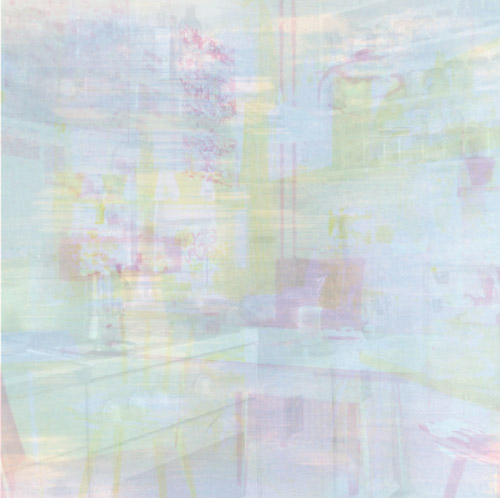



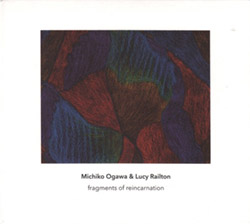
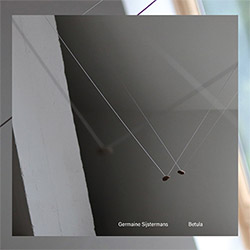
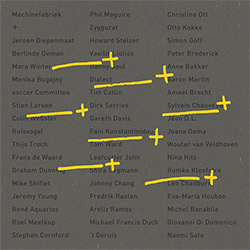

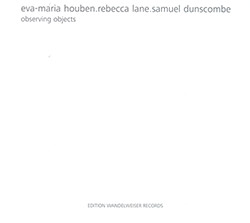
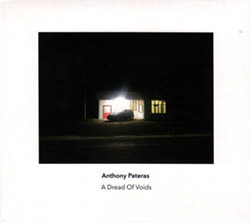
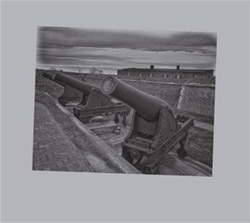
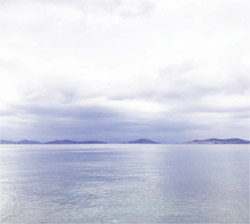
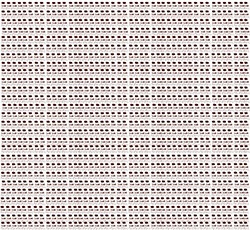
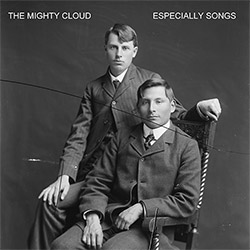
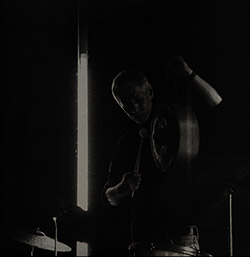

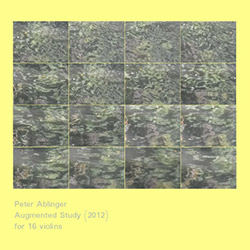
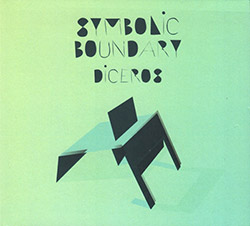


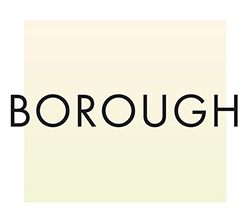


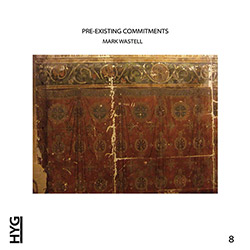
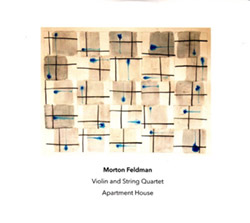
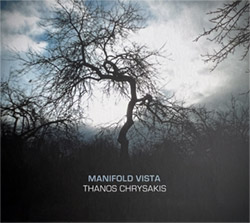


![Guy, Barry / Ken Vandermark: Occasional Poems [2 CDs]](https://www.teuthida.com/productImages/misc4/34849.jpg)
![Novoa / Carter / Mela Trio: Vol.1 [VINYL]](https://www.teuthida.com/productImages/misc4/35236.jpg)


![Elephant9 : Mythical River [VINYL]](https://www.teuthida.com/productImages/misc4/34624.jpg)
![Evans, Peter (Evans / Eldh / Black): Extra [VINYL]](https://www.teuthida.com/productImages/misc4/35279.jpg)

![McPhee, Joe: Straight Up, Without Wings [BOOK]](https://www.teuthida.com/productImages/misc4/35454.jpg)
![Jeck, Philip: rpm [2 CDs]](https://www.teuthida.com/productImages/misc4/35455.jpg)













![Barker / Parker / Irabagon: Bakunawa [VINYL]](https://www.teuthida.com/productImages/misc4/35533.jpg)
![Blaser, Samuel / Marc Ducret / Peter Bruun: Dark Was The Night, Cold Was The Ground [VINYL 10-inch]](https://www.teuthida.com/productImages/misc4/35492.jpg)








![Warren, Kenny (Warren / Hoffman / Ellman): Sweet World [VINYL]](https://www.teuthida.com/productImages/misc4/35451.jpg)




![Blake, Ran / Dave Knife Fabris: Live Amsterdam 2006, First Visit [CD + POSTCARDS]](https://www.teuthida.com/productImages/misc4/35275.jpg)













![DNS: Taking Big Bites Of The Khandas Three Cafes Deep [2 CDs]](https://www.teuthida.com/productImages/misc4/35334.jpg)




![Cleaver, Gerald: The Process [VINYL]](https://www.teuthida.com/productImages/misc4/34966.jpg)




![Alva Noto: HYbr:ID II [VINYL 2 LPs]](https://www.teuthida.com/productImages/misc4/35201.jpg)

![Baron, Derek / Luke Martin: Distinct and Concealed [CASSETTE + DOWNLOAD]](https://www.teuthida.com/productImages/misc4/35079.jpg)

![Lyle, Erica Dawn : Colonial Motels [CASSETTE + DOWNLOAD]](https://www.teuthida.com/productImages/misc4/35080.jpg)









![Sanna, Claudio: Compositori Sardi Contemporanei II [2 CDs]](https://www.teuthida.com/productImages/misc4/35317.jpg)







![Zurria, Manuel: Fame di Vento [3 CDs]](https://www.teuthida.com/productImages/misc4/35167.jpg)

![Granberg, Magnus / Nattens Inbrott / Skogen: Holde Traume, Kehret Wieder! [2 CDs]](https://www.teuthida.com/productImages/misc4/35038.jpg)
![Frey, Jurg: Outermost Melodie [2 CDs]](https://www.teuthida.com/productImages/misc4/35039.jpg)
![Pavone, Jessica: Reverse Bloom [VINYL]](https://www.teuthida.com/productImages/misc4/34895.jpg)




![Modney (Modney / Wooley / Gentile / Roberts / Pluta / Symthe / ...): Ascending Primes [2 CDs]](https://www.teuthida.com/productImages/misc4/34852.jpg)








![Elephant9 with Terje Rypdal: Catching Fire [VINYL 2 LPs]](https://www.teuthida.com/productImages/misc4/35355.jpg)
![Deerlady (Obomsawin, Mali / Magdalena Abrego): Greatest Hits [VINYL]](https://www.teuthida.com/productImages/misc4/34876.jpg)




![Haino, Keiji: Black Blues [2 CDs]](https://www.teuthida.com/productImages/misc4/35109.jpg)



![Surplus 1980: Illusion of Consistency [CD]](https://www.teuthida.com/productImages/misc4/35069.jpg)
![Staiano, Moe: Away Towards the Light [VINYL + DOWNLOAD]](https://www.teuthida.com/productImages/misc4/35037.jpg)



![Caveira (Gomes / Sousa / Abras / Ferrandini): Ficar Vivo [VINYL]](https://www.teuthida.com/productImages/misc4/34643.jpg)
![Gregg, J. J. / David Van Auken: Lunar Prairie [CD w/ DOWNLOAD]](https://www.teuthida.com/productImages/misc4/34611.jpg)

![Coultrain: Mundus [VINYL]](https://www.teuthida.com/productImages/misc4/32439.jpg)
![Mattin: Songbook #6 [VINYL]](https://www.teuthida.com/productImages/misc4/27317.jpg)
![Punkappella: Wake Up [7-inch VINYL]](https://www.teuthida.com/productImages/misc4/17519.jpg)
![Residents, The: WARNING: UNiNC.: Live And Experimental Recordings 1971-1972 [VINYL 2 LPs]](https://www.teuthida.com/productImages/misc4/31521.jpg)
![Coultrain: Phantasmagoria [VINYL]](https://www.teuthida.com/productImages/misc4/30142.jpg)
![Lennon, Sean Ono: Asterisms [VINYL]](https://www.teuthida.com/productImages/misc4/34517.jpg)

![Coley, Byron: Dating Tips for Touring Bands [VINYL]](https://www.teuthida.com/productImages/misc4/17906.jpg)

![Lost Kisses: My Life is Sad & Funny [DVD]](https://www.teuthida.com/productImages/misc4/lostKissesDVD.jpg)